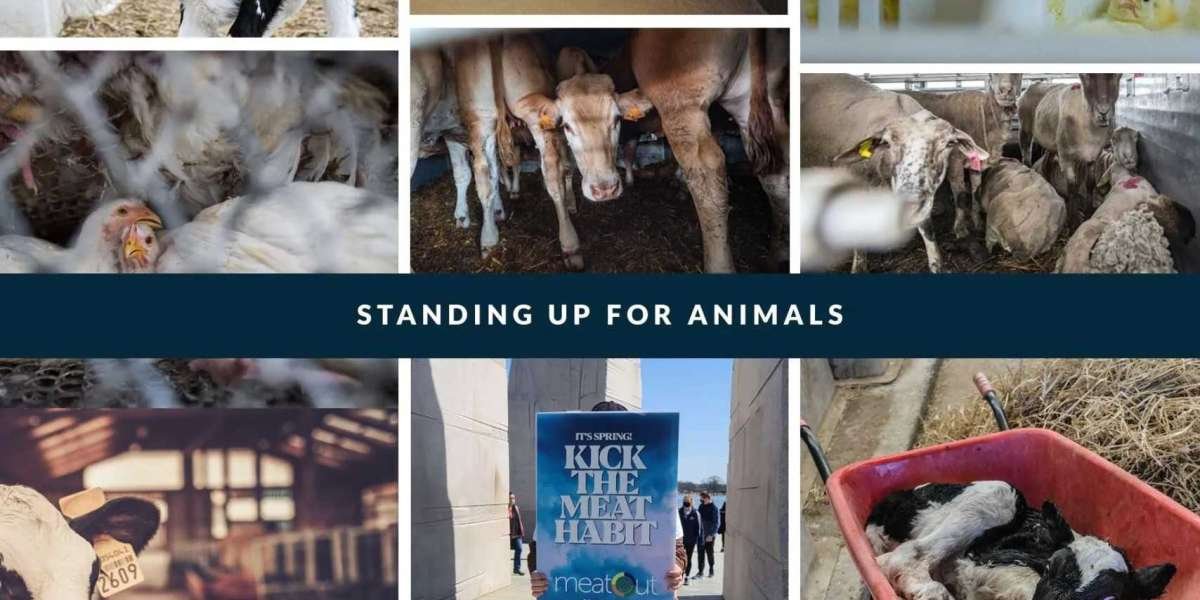Central to the meat industry's brutality is the concept of factory farming, where efficiency and profit margins dictate the treatment of animals. Livestock such as cattle, pigs, and chickens are often confined in cramped, unsanitary conditions. For instance, chickens are typically kept in battery cages so small that they cannot spread their wings, leading to severe physical and psychological stress. Pigs are frequently housed in gestation crates that restrict their movement entirely, causing muscle atrophy and extreme distress. Cattle, while often raised in feedlots, suffer from overcrowding and unsanitary conditions that foster disease and injury.
The physical modifications imposed on these animals to maximize productivity further illustrate the cruelty inherent in the meat industry. Chickens are bred to grow rapidly, resulting in birds that are so heavy their legs can barely support them, causing chronic pain. Pigs and cows are often subjected to painful procedures like tail docking, castration, and dehorning without anesthesia, leading to significant suffering and prolonged pain.
Slaughter practices within the meat industry are another major source of brutality. The journey to the slaughterhouse is often long and grueling, with animals subjected to extreme temperatures, stress, and overcrowding. Upon arrival, the methods used to kill them can be inhumane. For example, chickens are shackled upside down and passed through electrified water baths meant to stun them before their throats are slit. However, this process is not always effective, and many birds are conscious when they are killed. Similarly, cattle and pigs are supposed to be stunned before slaughter, but improper stunning techniques can result in animals being skinned or dismembered while still alive.
The psychological impact of this treatment on animals is profound. The constant fear, pain, and inability to engage in natural behaviors lead to severe psychological trauma. Animals often exhibit signs of extreme stress and anxiety, such as repetitive movements, aggression, or complete withdrawal. This psychological suffering is an often overlooked but significant aspect of the brutality within the meat industry.
Moreover, the meat industry's brutality extends beyond the immediate suffering of animals. The environmental impact of intensive animal farming is immense, contributing to deforestation, water pollution, and greenhouse gas emissions. These practices not only harm the planet but also perpetuate a system that prioritizes profit over ethical considerations and sustainability.
Efforts to address the brutality in the meat industry require comprehensive changes. Advocates call for stricter animal welfare regulations, improved living conditions, and more humane slaughter practices. Some suggest shifting towards plant-based diets or lab-grown meat as long-term solutions to reduce dependence on animal agriculture and mitigate its associated cruelties.
Consumer awareness and choice also play a crucial role in driving change. By supporting humane farming practices and opting for ethically sourced products, individuals can help reduce the demand for meat produced under brutal conditions. Education and transparency about the realities of the meat industry are essential in fostering a more ethical and sustainable food system.
In conclusion, the meat industry is fraught with brutality that causes immense suffering for animals and significant environmental damage. Addressing these issues requires systemic change, stricter regulations, and a shift in consumer behavior towards more humane and sustainable practices. Only through collective effort and awareness can we hope to alleviate the suffering inherent in the meat industry and create a more ethical and compassionate world.











